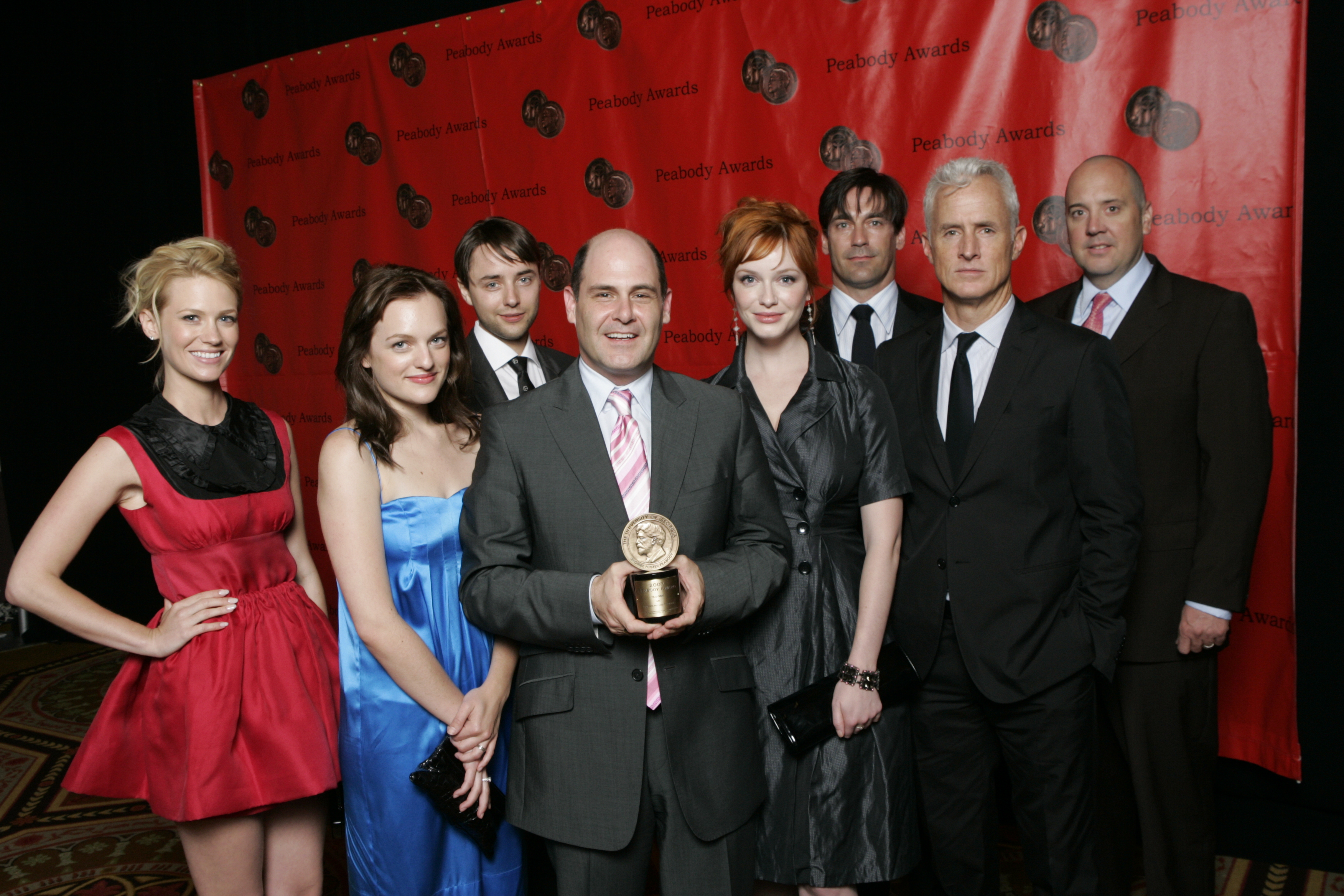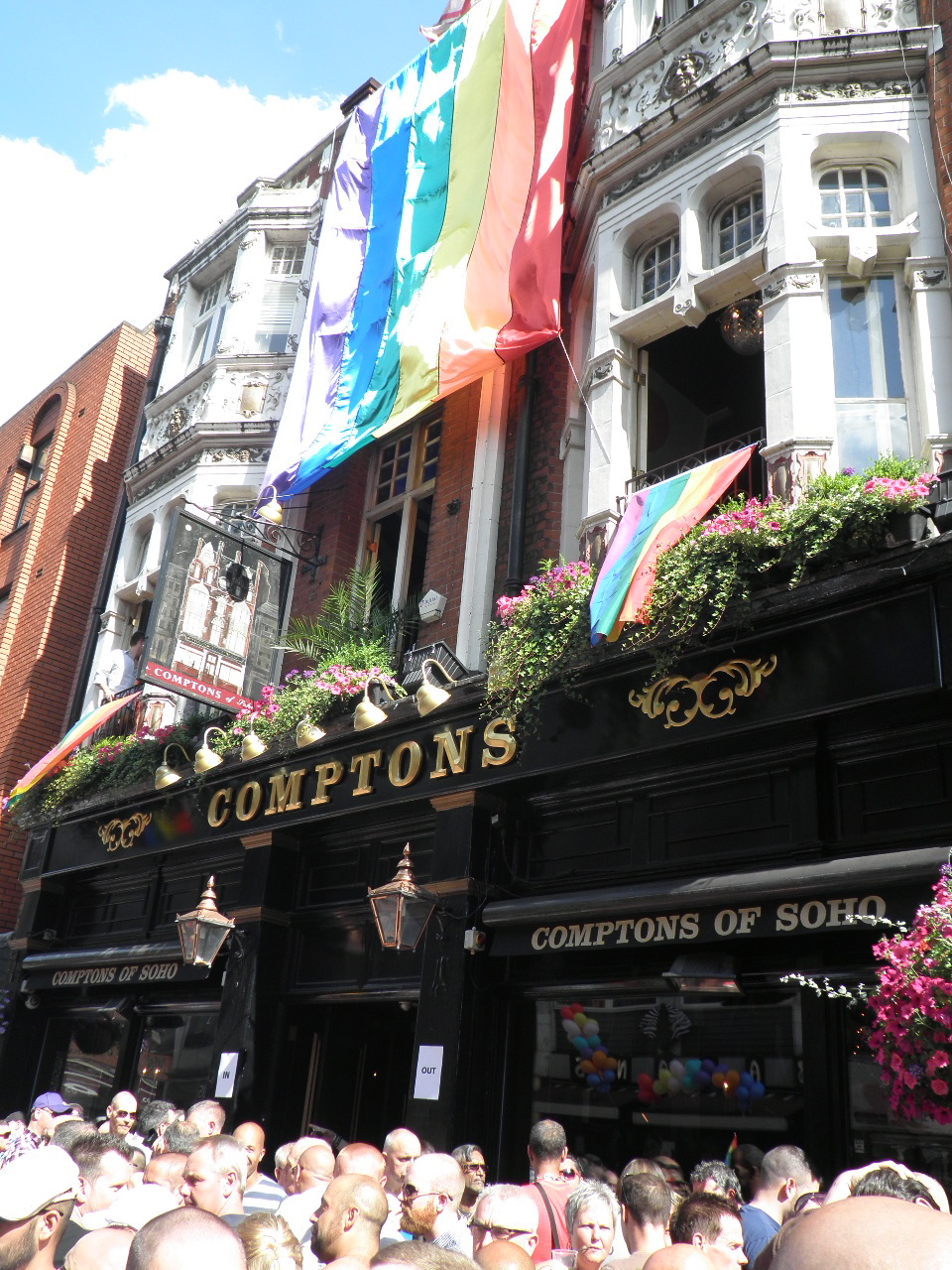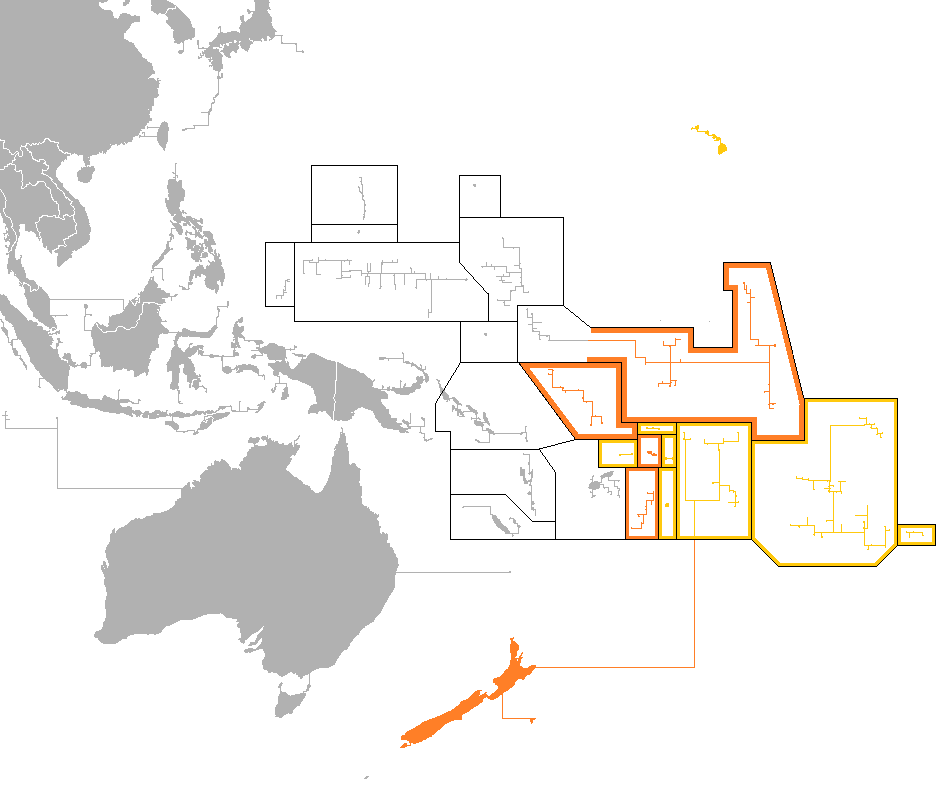|
The Rejected
''The Rejected'' is a made-for-television documentary film about homosexuality, produced for KQED in San Francisco by John W. Reavis.Kaiser, p. 161 Notable as the first documentary program on homosexuality broadcast on American television,Alwood, p. 41 KQED first aired the film on September 11, 1961. Later syndicated to National Educational Television (NET) stations across the United States, it received positive critical reviews. Production Reavis, an independent producer who was apparently unconnected to the homophile movement, wrote up his idea for ''The Rejected'' in 1960.Capsuto, p. 39 Reavis originally titled the documentary ''The Gay Ones''. He explained his goals for the program in his proposal: Thus, Reavis approached the topic from the standpoint of homosexuality being a social problem akin to alcoholism or prostitution. This echoed how many earlier programs, often produced as episodes of local talk shows, addressed homosexuality with shows bearing such titles as ... [...More Info...] [...Related Items...] OR: [Wikipedia] [Google] [Baidu] |
Mad Men
''Mad Men'' is an American historical drama, period drama television series created by Matthew Weiner and produced by Lionsgate Television. It ran on cable network AMC (TV channel), AMC from July 19, 2007, to May 17, 2015, with seven seasons and 92 episodes. It is set during the period of March 1960 to November 1970. ''Mad Men'' begins at the fictional Sterling Cooper advertising agency on Madison Avenue in Manhattan, New York City, and continues at the new firm of Sterling Cooper Draper Pryce (later named Sterling Cooper & Partners) in the Time-Life Building at 1271 Sixth Avenue (Manhattan), Sixth Avenue. According to the pilot episode, the term "Mad men" was coined in the 1950s by Madison Avenue#Advertising industry, advertisers working on Madison Avenue to refer to themselves, "Mad" being short for "Madison". The only documented use of the phrase from that time, however, may be the late-1950s writings of James Kelly, an advertising executive and writer. The series's main c ... [...More Info...] [...Related Items...] OR: [Wikipedia] [Google] [Baidu] |
Gay Bar
A gay bar is a Bar (establishment), drinking establishment that caters to an exclusively or predominantly lesbian, gay, bisexual, transgender or queer (LGBTQ+) clientele; the term ''gay'' is used as a broadly inclusive concept for LGBTQ+ communities. Gay bars once served as the centre of gay culture and were one of the few places people with homosexuality, same-sex orientations and gender-variant identities could openly socialize. Other names used to describe these establishments include ''boy bar'', ''girl bar'', ''gay club'', ''gay Public house, pub'', ''queer bar'', ''lesbian bar'', ''drag bar'', and ''Dyke (slang), dyke bar'', depending on the niche communities that they serve. With the advent of the Internet and an increasing acceptance of LGBTQ+ people across the Western world, the relevance of gay bars in the LGBTQ+ community has somewhat diminished. In areas without a gay bar, certain establishments may hold a gay night instead. History Gathering places favoured by hom ... [...More Info...] [...Related Items...] OR: [Wikipedia] [Google] [Baidu] |
Sodomy Laws In The United States
The early United States inherited sodomy laws which constitutionally outlawed a variety of sexual acts deemed illegal, illicit, unlawful, unnatural or immoral from the colonial-era based laws in the 17th century. While these laws often targeted sexual acts between persons of the same sex, many sodomy-related statutes employed definitions broad enough to outlaw certain sexual acts between persons of different sexes, in some cases even including acts between married persons. Through the mid to late 20th century, the gradual decriminalization of consensual sexual acts led to the elimination of anti-sodomy laws in most U.S. states. During this time, the Supreme Court upheld the constitutionality of its sodomy laws in '' Bowers v. Hardwick'' in 1986. In 2003, the Supreme Court reversed that decision with '' Lawrence v. Texas'', which invalidated any state sodomy laws, some of which were still law in the following 14 states: Alabama, Florida, Idaho, Kansas, Louisiana, Mic ... [...More Info...] [...Related Items...] OR: [Wikipedia] [Google] [Baidu] |
Rabbi
A rabbi (; ) is a spiritual leader or religious teacher in Judaism. One becomes a rabbi by being ordained by another rabbi—known as ''semikha''—following a course of study of Jewish history and texts such as the Talmud. The basic form of the rabbi developed in the Pharisees, Pharisaic (167 BCE–73 CE) and Talmudic (70–640 CE) eras, when learned teachers assembled to codify Judaism's written and oral laws. The title "rabbi" was first used in the first century CE. In more recent centuries, the duties of a rabbi became increasingly influenced by the duties of the Clergy, Protestant Christian minister, hence the title "pulpit rabbis." Further, in 19th-century Germany and the United States, rabbinic activities such as sermons, pastoral counseling, and representing the community to the outside all increased in importance. Within the various Jewish denominations, there are different requirements for rabbinic ordination and differences in opinion regarding who is recognized as a ... [...More Info...] [...Related Items...] OR: [Wikipedia] [Google] [Baidu] |
James Pike
James Albert Pike (February 14, 1913–) was an American Episcopal bishop, accused heretic, writer, and one of the first mainline religious figures to appear regularly on television. Pike's outspoken, and to some of his fellow bishops, heretical, views on many theological and social issues made him one of the most controversial public figures of his time. He was an early proponent of the ordination of women and racial desegregation within mainline churches. The chain smoking Pike was the fifth Bishop of California and, a few years before he began to explore spiritualism and psychic phenomena in an effort to contact his deceased son, became a recovering alcoholic. Early life Pike was born in Oklahoma City on February 14, 1913 to James A. Pike and Pearl Agatha Wimsatt Pike. His father died when he was two and he moved to California with his mother who married California attorney Claude McFadden. Pike, who was Roman Catholic, graduated from Hollywood High School in 1930 and con ... [...More Info...] [...Related Items...] OR: [Wikipedia] [Google] [Baidu] |
Episcopal Church (United States)
The Episcopal Church (TEC), also known as the Protestant Episcopal Church in the United States of America (PECUSA), is a member of the worldwide Anglican Communion, based in the United States. It is a mainline Protestant denomination and is divided into nine Ecclesiastical provinces and dioceses of the Episcopal Church, provinces. The current presiding bishop of the Episcopal Church is Sean Rowe, Sean W. Rowe. In 2023, the Episcopal Church had 1,547,779 members. it was the 14th largest denomination in the United States. Note: The number of members given here is the total number of baptized members in 2012 (cf. #refBaptizedMembers2012, Baptized Members by Province and Diocese 2002–2013). In 2025, Pew Research Center, Pew Research estimated that 1 percent of the adult population in the United States, or 2.6 million people, self-identify as mainline Episcopalians. The church has declined in membership and Sunday attendance since the 1960s, particularly in the Northeastern Uni ... [...More Info...] [...Related Items...] OR: [Wikipedia] [Google] [Baidu] |
Langley Porter Psychiatric Institute
Langley Porter Psychiatric Hospital (LPPH) is a psychiatric teaching hospital, part of the Psychiatry Department at the University of California, San Francisco. It was located on the Parnassus campus of UCSF until 2023, when it moved to the UCSF Medical Center at Mount Zion. Langley Porter Clinic was the first psychiatric institute in California, and is the oldest facility of the UCSF Psychiatry Department. History The foundation stone of the hospital was laid in 1941. The hospital opened in 1942 with 100 beds, and was completed in 1943. The hospital was first known by the name "Langley Porter Clinic", which later changed to the "Langley Porter Neuropsychiatric Institute", and later again to "Langley Porter Psychiatric Institute", or informally, "LPPI". In 1948, "the clinic's director, Karl Bowman, was transforming it into one of the world's most important hubs for research into transgender sexual identities." It was also "an important early center for the development of psyche ... [...More Info...] [...Related Items...] OR: [Wikipedia] [Google] [Baidu] |
Indigenous Peoples Of The Americas
In the Americas, Indigenous peoples comprise the two continents' pre-Columbian inhabitants, as well as the ethnic groups that identify with them in the 15th century, as well as the ethnic groups that identify with the pre-Columbian population of the Americas as such. These populations exhibit significant diversity; some Indigenous peoples were historically hunter-gatherers, while others practiced agriculture and aquaculture. Various Indigenous societies developed complex social structures, including pre-contact monumental architecture, organized city, cities, city-states, chiefdoms, state (polity), states, monarchy, kingdoms, republics, confederation, confederacies, and empires. These societies possessed varying levels of knowledge in fields such as Pre-Columbian engineering in the Americas, engineering, Pre-Columbian architecture, architecture, mathematics, astronomy, History of writing, writing, physics, medicine, Pre-Columbian agriculture, agriculture, irrigation, geology, minin ... [...More Info...] [...Related Items...] OR: [Wikipedia] [Google] [Baidu] |
Inuit
Inuit (singular: Inuk) are a group of culturally and historically similar Indigenous peoples traditionally inhabiting the Arctic and Subarctic regions of North America and Russia, including Greenland, Labrador, Quebec, Nunavut, the Northwest Territories, Yukon (traditionally), Alaska, and the Chukotsky District of Chukotka Autonomous Okrug. The Inuit languages are part of the Eskaleut languages, also known as Inuit-Yupik-Unangan, and also as Eskimo–Aleut. Canadian Inuit live throughout most of Northern Canada in the territory of Nunavut, Nunavik in the northern third of Quebec, the Nunatsiavut in Labrador, and in various parts of the Northwest Territories and Yukon (traditionally), particularly around the Arctic Ocean, in the Inuvialuit Settlement Region. These areas are known, by Inuit Tapiriit Kanatami and the Government of Canada, as Inuit Nunangat. In Canada, sections 25 and 35 of the Constitution Act of 1982 classify Inuit as a distinctive group of Abo ... [...More Info...] [...Related Items...] OR: [Wikipedia] [Google] [Baidu] |
South Sea Islands
Polynesia ( , ) is a subregion of Oceania, made up of more than 1,000 islands scattered over the central and southern Pacific Ocean. The indigenous people who inhabit the islands of Polynesia are called Polynesians. They have many things in common, including linguistic relations, cultural practices, and traditional beliefs. In centuries past, they had a strong shared tradition of sailing and using stars to navigate at night. The term was first used in 1756 by the French writer Charles de Brosses, who originally applied it to all the islands of the Pacific. In 1831, Jules Dumont d'Urville proposed a narrower definition during a lecture at the Société de Géographie of Paris. By tradition, the islands located in the southern Pacific have also often been called the South Sea Islands, and their inhabitants have been called South Sea Islanders. The Hawaiian Islands have often been considered to be part of the South Sea Islands because of their relative proximity to the ... [...More Info...] [...Related Items...] OR: [Wikipedia] [Google] [Baidu] |
Ancient Greece
Ancient Greece () was a northeastern Mediterranean civilization, existing from the Greek Dark Ages of the 12th–9th centuries BC to the end of classical antiquity (), that comprised a loose collection of culturally and linguistically related city-states and communities. Prior to the Roman period, most of these regions were officially unified only once under the Kingdom of Macedon from 338 to 323 BC. In Western history, the era of classical antiquity was immediately followed by the Early Middle Ages and the Byzantine period. Three centuries after the decline of Mycenaean Greece during the Bronze Age collapse, Greek urban poleis began to form in the 8th century BC, ushering in the Archaic period and the colonization of the Mediterranean Basin. This was followed by the age of Classical Greece, from the Greco-Persian Wars to the death of Alexander the Great in 323 BC, and which included the Golden Age of Athens and the Peloponnesian War. The u ... [...More Info...] [...Related Items...] OR: [Wikipedia] [Google] [Baidu] |
Anthropology
Anthropology is the scientific study of humanity, concerned with human behavior, human biology, cultures, society, societies, and linguistics, in both the present and past, including archaic humans. Social anthropology studies patterns of behaviour, while cultural anthropology studies cultural meaning, including norms and values. The term sociocultural anthropology is commonly used today. Linguistic anthropology studies how language influences social life. Biological anthropology, Biological (or physical) anthropology studies the biology and evolution of Human evolution, humans and their close primate relatives. Archaeology, often referred to as the "anthropology of the past," explores human activity by examining physical remains. In North America and Asia, it is generally regarded as a branch of anthropology, whereas in Europe, it is considered either an independent discipline or classified under related fields like history and palaeontology. Etymology The abstract noun ''wikt ... [...More Info...] [...Related Items...] OR: [Wikipedia] [Google] [Baidu] |








